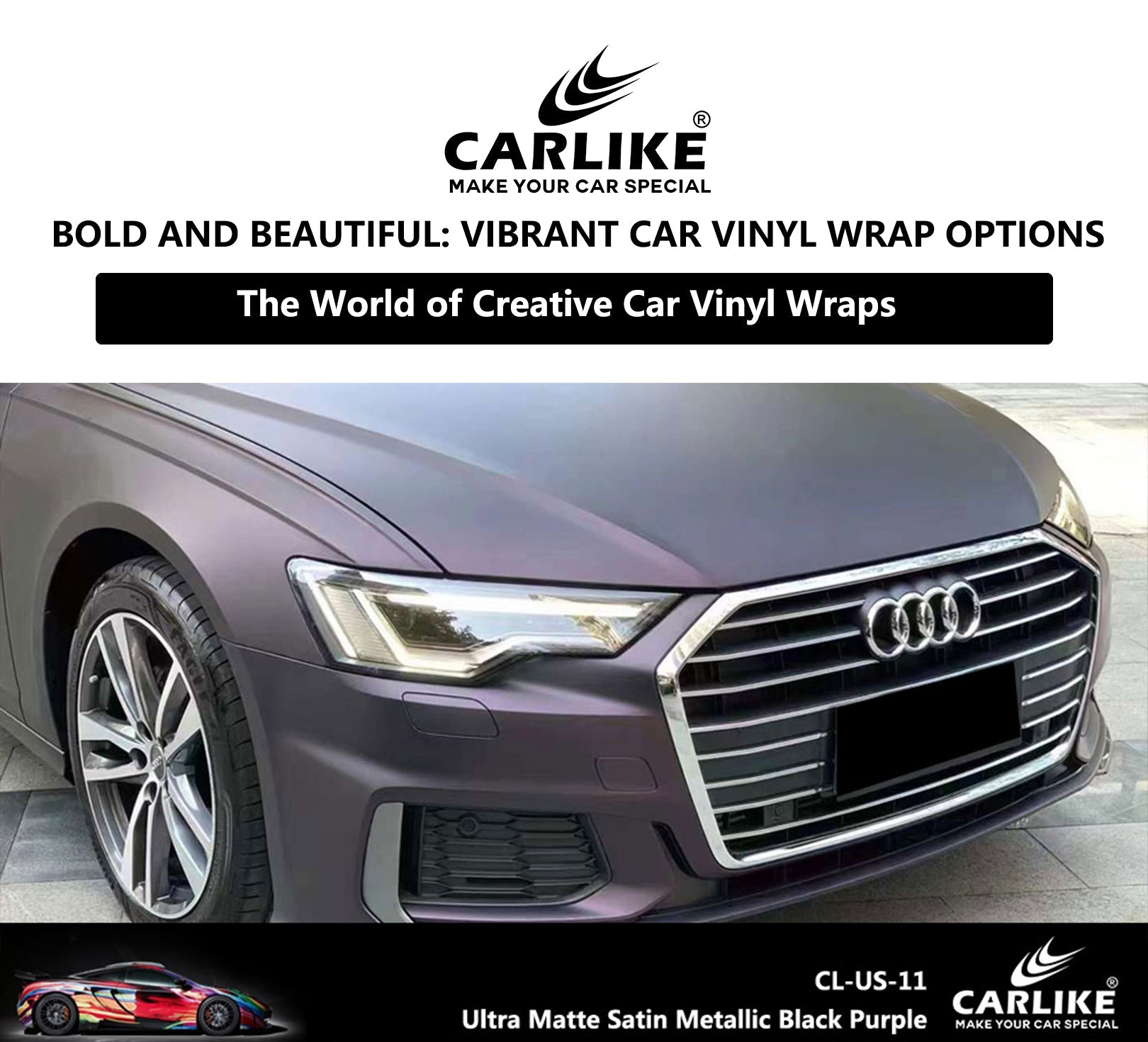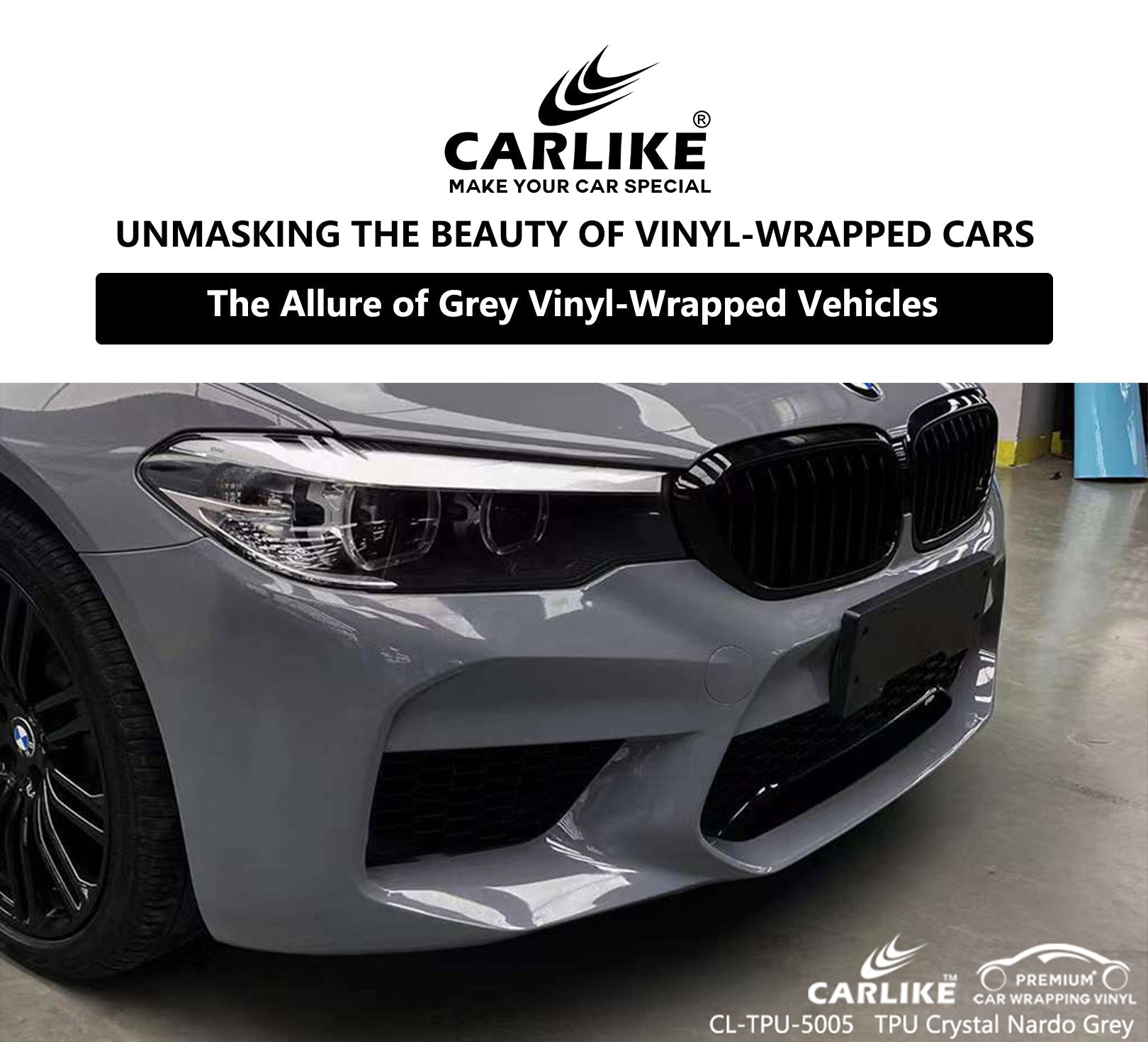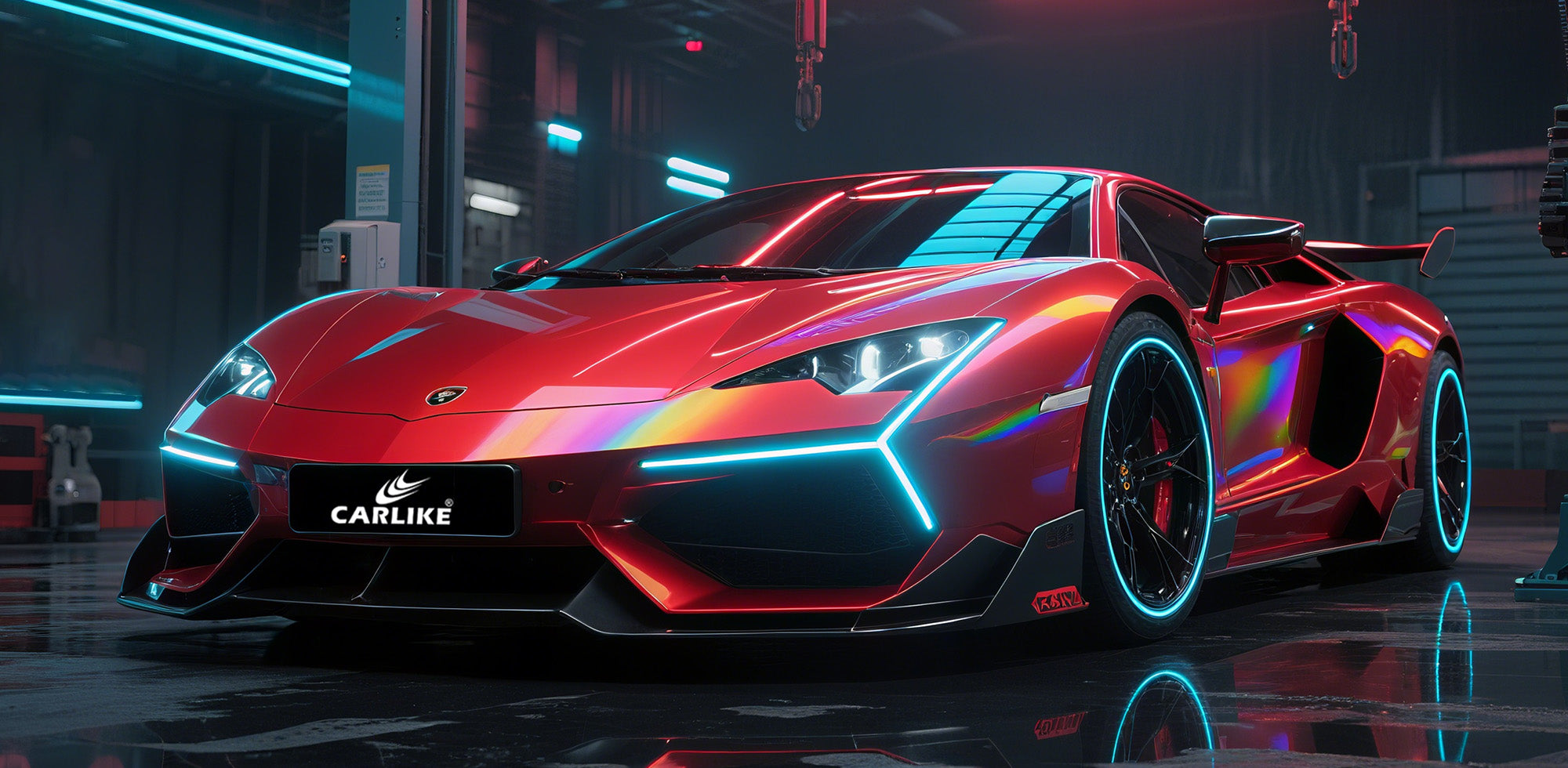Factors Influencing Vinyl Wrap Costs
When it comes to the cost of a car vinyl wrap for a car, several factors come into play. Understanding these elements can help individuals make informed decisions about their car vinyl wrap investment. Here are the key factors that affect the overall cost:
1. Material Quality:
- Standard vs. Premium Vinyl: The quality and type of vinyl material used play a significant role. Standard vinyl is generally more affordable, but it may not have the same durability and finish as premium or specialty vinyl.
- Specialty Finishes and Textures: Specialty vinyl finishes like matte, gloss, satin, metallic, chrome, or textured options can be more expensive than standard finishes.
- Brands and Manufacturers: Different brands and manufacturers offer varying quality levels of vinyl. Recognized brands may charge more for their premium materials.
2. Vehicle Size and Complexity:
- Car Size and Type: Larger vehicles like SUVs, trucks, or vans require more material, which will increase the overall cost. Compact cars, on the other hand, will generally cost less.
- Complexity of Design: Elaborate or intricate designs may require more time and material to install, thereby raising the overall cost. Simple, single-color wraps are usually more budget-friendly.
3. Design Customization:
- Full Car Wrap vs. Partial Car Wrap: A full wrap covers the entire vehicle, while a partial car wrap only covers specific areas. Full car wraps are more expensive due to the increased material and labor required.
- Graphics, Logos, and Artwork: Adding custom graphics, logos, or artwork to the wrap can increase the cost, as it involves additional design work and precise application.
4. Labor Costs:
- Professional Installation: Hiring a professional installer ensures a high-quality finish, but it comes with a labor cost. Labor fees may vary based on the expertise and reputation of the installer.
- Complexity of Installation: Some vehicles have intricate contours or challenging areas that require extra time and skill to wrap properly, which can increase labor costs.
5. Location and Availability:
- Geographical Location: The cost of living and business expenses can vary by location, which may impact the pricing of vinyl wrap services.
- Availability of Installers: In areas with a higher demand for vinyl wrapping services, prices may be higher due to increased competition.
6. Additional Services and Extras:
- Surface Preparation: If the vehicle requires extensive cleaning or surface preparation before wrapping, this can add to the overall cost.
- Clear Coat Protection: Applying a clear protective layer on top of the vinyl wrap can enhance durability but will incur an extra cost.
It's important for individuals considering a vinyl wrap to discuss these factors with a professional installer to get an accurate quote. Additionally, requesting multiple quotes from different providers can help in comparing prices and services. Remember, while cost is a significant factor, it's also crucial to prioritize quality and expertise when choosing a vinyl wrap installer.




Comparing Vinyl Wraps to Paint Jobs
Here's a cost comparison between getting a car wrapped and getting it painted, along with an explanation of the potential cost savings of vinyl wrapping:
Getting a Car Wrapped vs. Getting it Painted: A Cost Comparison
1. Material Costs:
- Car Wrapping: Vinyl wrap material costs vary depending on the quality and type of vinyl used. Standard vinyl wraps typically range from $2 to $5 per square foot, while premium or specialty vinyl can cost up to $10 per square foot.
- Painting: The cost of automotive paint and supplies can range from $500 to $3,000, depending on the quality of the paint and the type of finish desired.
2. Labor Costs:
- Car Wrapping: Professional installation of a vinyl wrap typically ranges from $1,000 to $3,000, depending on the complexity of the design and the size of the vehicle.
- Painting: Professional automotive painting requires significant labor, including preparation, priming, painting, and clear-coating. Labor costs can range from $2,000 to $5,000 or more.
3. Time Investment:
- Car Wrapping: Vinyl wrapping can usually be completed in a few days, depending on the complexity of the design.
- Painting: A professional paint job may take a week or more, including drying and curing times between coats.
4. Additional Costs and Considerations:
- Car Wrapping: Some additional costs may include design fees (for custom graphics), removal fees (if the wrap needs to be taken off), and minor touch-up costs.
- Painting: Additional costs may include bodywork, primer, clear coat, and potentially rust repair if necessary.
5. Longevity and Maintenance:
- Car Wrapping: A well-maintained vinyl wrap can last 5-7 years or more. Regular cleaning and occasional touch-ups may be needed.
- Painting: A professionally painted car can last 10-15 years or more with proper care. Repainting may be required if the finish begins to fade or peel.
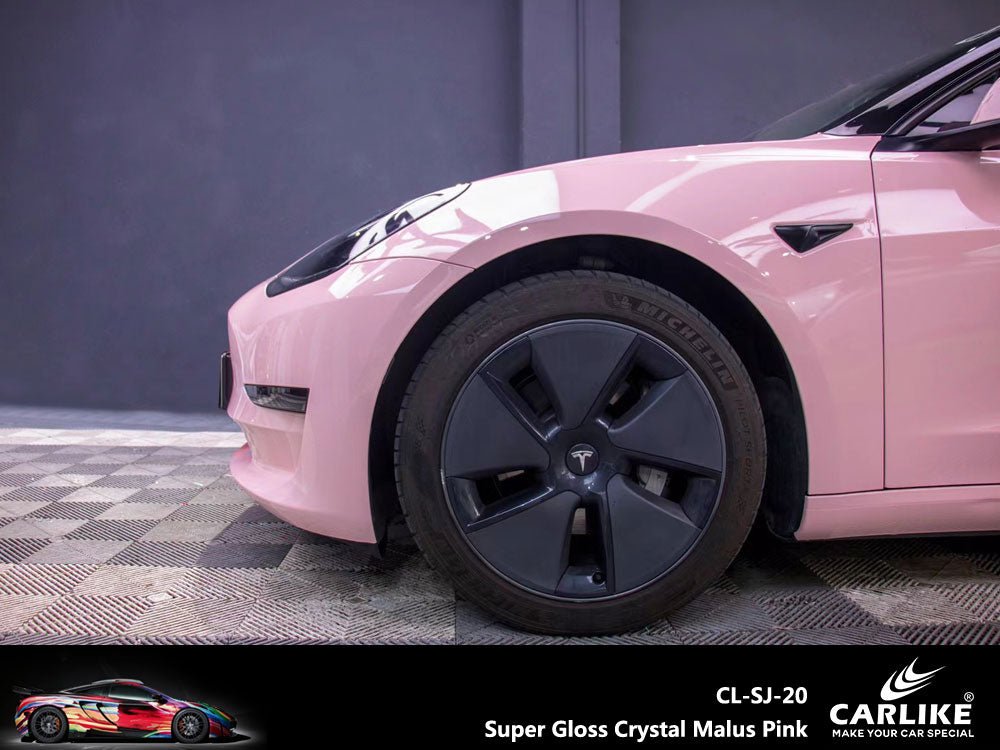
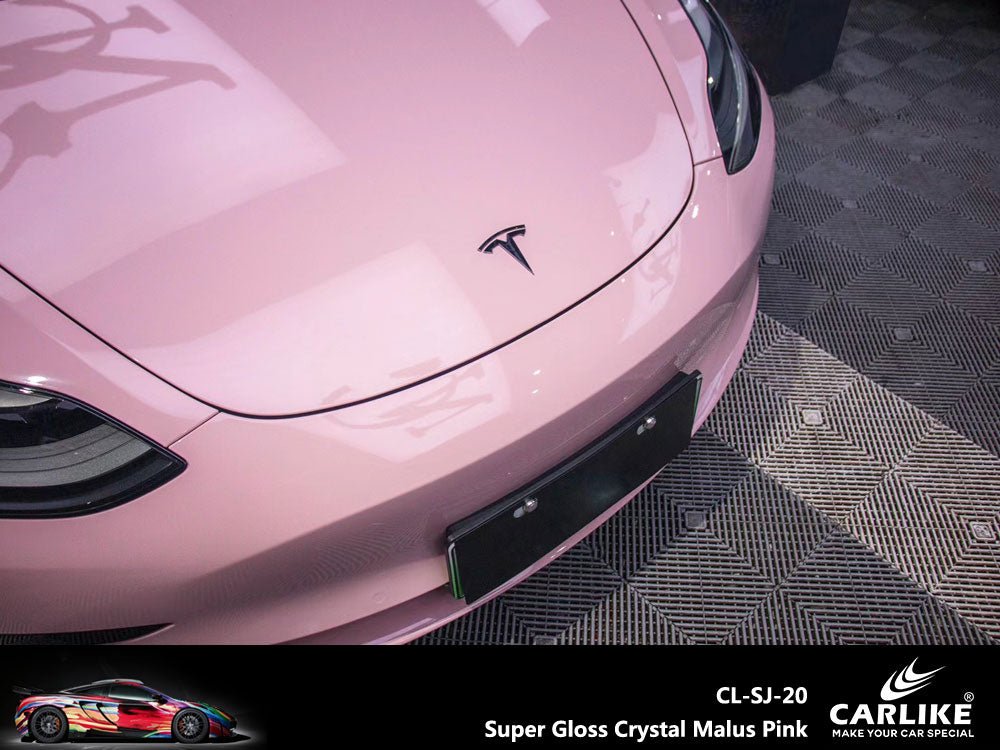
Potential Cost Savings of Vinyl Wrapping:
1. Lower Material Costs: Vinyl wrap material is generally more affordable than high-quality automotive paint.
2. Reduced Labor Costs: Labor for vinyl wrapping is often less expensive than the extensive preparation required for painting.
3. Faster Turnaround Time: Vinyl wrapping can be completed in a fraction of the time it takes to paint a car.
4. Versatility in Design: Vinyl wraps offer a wide range of design options, including custom graphics, which may be more costly and complex with painting.
5. Reversibility: Vinyl wraps can be removed without damaging the underlying paint, allowing for changes in design or reverting to the original look.
It's important to note that both vinyl wrapping and painting have their own advantages and considerations. The choice ultimately depends on the car owner's preferences, budget, and desired outcome. Additionally, it's recommended to seek quotes from reputable professionals to get an accurate cost estimate for each option.
Additional Services and Customization
Extra services offered by vinyl wrapping professionals can significantly impact the overall cost of a car wrap. Here's an exploration of these services:
1. Graphic Design Work:
- Cost Impact: Graphic design work involves creating custom graphics, patterns, or logos to be incorporated into the vinyl wrap. This service adds an additional cost, which varies depending on the complexity and size of the design.
- Benefits: Custom graphics allow for a unique and personalized look for the vehicle. It's an excellent option for businesses looking to incorporate branding elements into their car wrap.
2. Color Matching:
- Cost Impact: Color matching ensures that the vinyl wrap perfectly matches the desired color of the car or any specific color scheme. This service may require extra time and effort, which can lead to increased costs.
- Benefits: Achieving a seamless color match enhances the overall aesthetic of the vehicle and provides a professional finish.
3. Special Finishes (e.g., Matte, Gloss, Satin):
- Cost Impact: Opting for special finishes like matte, gloss, satin, metallic, or chrome can significantly impact the overall cost. Special finishes often require specialized materials and application techniques.
- Benefits: Special finishes offer a unique and eye-catching look. They can make a vehicle stand out and add a touch of luxury or exclusivity.
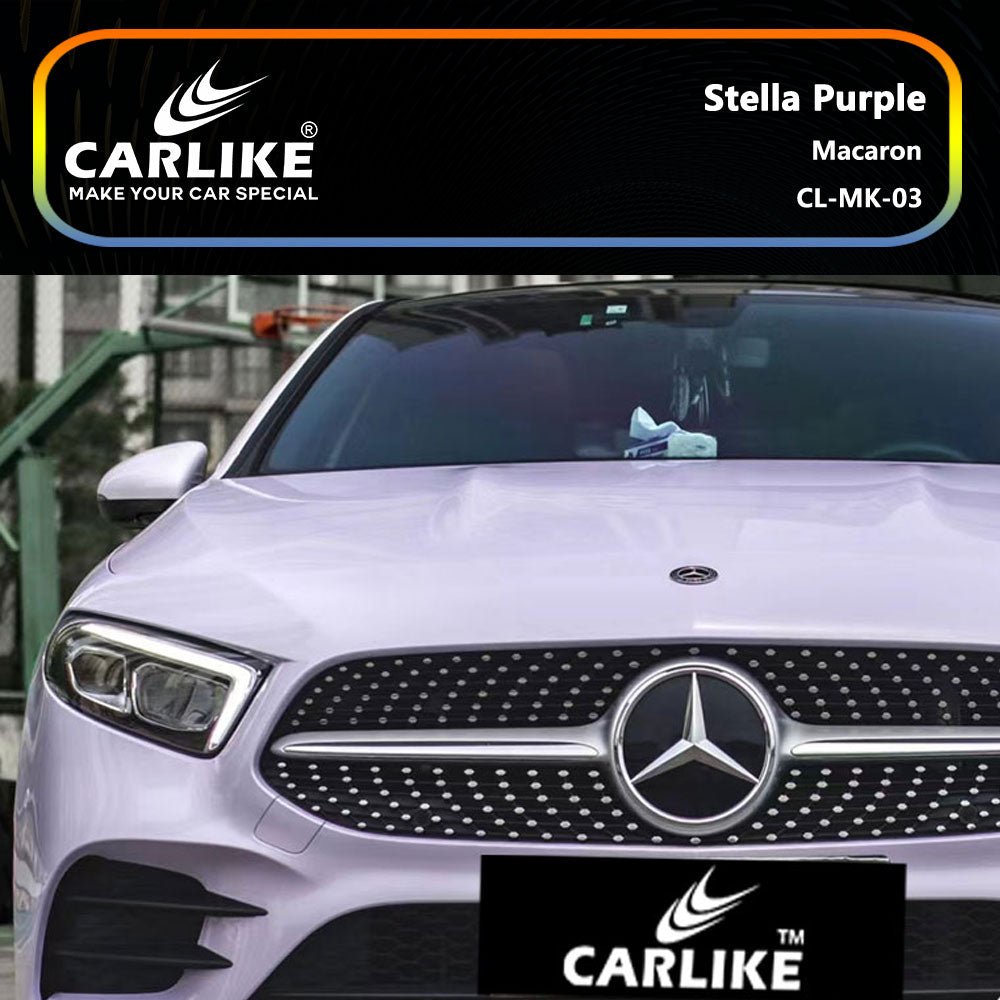
4. Detailing and Surface Preparation:
- Cost Impact: Properly preparing the vehicle's surface (e.g., thorough cleaning, smoothing out imperfections) is crucial for a successful vinyl wrap application. This service is essential and is typically included in the overall cost estimate.
- Benefits: A well-prepared surface ensures that the vinyl adheres properly, leading to a smooth and long-lasting finish.
5. Clear Coat Protection:
- Cost Impact: Applying a clear coat protection over the vinyl wrap can add to the overall cost. This protective layer helps shield the wrap from damage due to UV rays, debris, and minor abrasions.
- Benefits: Clear coat protection prolongs the lifespan of the vinyl wrap and maintains its appearance over time.
6. Removal and Disposal:
- Cost Impact: If the vinyl wrap needs to be removed at any point, there may be a separate cost associated with the removal process. This can vary based on factors like the age and condition of the wrap.
- Benefits: Professional removal ensures that the paintwork underneath is not damaged, allowing for a smooth transition back to the original finish.
It's important for car owners to discuss these extra services with the vinyl wrapping professional and receive detailed cost estimates before proceeding. This way, they can make informed decisions about which services are essential for achieving the desired look for their vehicle.
FAQ for vinyl wrap cost for car?
Q: How much does it typically cost to wrap a car?
A: The cost of wrapping a car can vary widely depending on factors like the size of the vehicle, the type of vinyl material used, design complexity, and additional services. On average, a basic vinyl wrap can start around $1,000, while more intricate wraps or specialty materials can cost several thousand dollars.
Q: What factors influence the cost of a car vinyl wrap?
A: Several factors can affect the cost of a car wrap, including the size of the vehicle, the quality and type of vinyl material chosen, the complexity of the design, any additional services like graphic design or color matching, and the labor charges for professional installation.
Q: How does the size of the vehicle impact the cost of the vinyl wrap?
A: Larger vehicles, such as SUVs, vans, or trucks, require more vinyl material, which can increase the overall cost of the wrap compared to smaller cars.
Q: What is the difference in cost between standard, premium, and specialty vinyl materials?
A: Standard vinyl materials are generally more affordable, while premium and specialty materials (e.g., metallic, chrome, textured finishes) can be more expensive due to their unique features and higher quality.
Q: Does the design complexity affect the cost of the vinyl wrap?
A: Yes, intricate and detailed designs or custom graphics can increase the cost of the vinyl wrap due to the additional time and expertise required for installation.
Final Words
In conclusion, embarking on a vinyl wrap journey is an exciting way to breathe new life into your vehicle's appearance. By delving into the intricacies of vinyl wrap costs, we've gained a clearer understanding of the investment involved. Remember, the final price is influenced by factors like material quality, design complexity, and additional services. Whether you opt for a standard wrap or indulge in a custom masterpiece, each choice contributes to the unique transformation of your car. Take your time in planning, consider your preferences, and consult with professionals to find the perfect balance between cost and the awe-inspiring result you envision. With careful consideration, you'll embark on a journey that not only elevates your car's look but also leaves a lasting impression on those who catch a glimpse.






